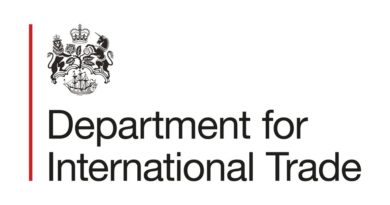PRESS RELEASE : Distillers toast £25m Brazilian boost for Scotch Whisky [August 2024]
The press release issued by the Department for Business and Trade on 21 August 2024.
Trade Secretary Jonathan Reynolds is visiting a distillery in Scotland to celebrate Brazil’s decision to grant special protected status to Scotch Whisky.
- Trade Secretary visits distillery to celebrate new protections for Scotch Whisky in South America’s largest economy
- Protections will help stop bootleg products being labelled ‘Scotch Whisky’ and could be worth £25 million to the industry over five years
- Breaking down barriers and unlocking new opportunities for UK exporters in international markets is a priority for this Government
Trade Secretary Jonathan Reynolds has today [Wednesday 21 August] visited Glengoyne Distillery in Scotland to celebrate Brazil’s decision to grant special protected status to Scotch Whisky – bolstering ‘Brand Scotland’ by promoting iconic Scottish products across the world.
This new protection means the Brazilian legal system recognises the special status of Scotch Whisky, making it easier to tackle counterfeits and giving distillers the confidence to up their exports to Brazil, boosting a sector that already contributes billions to the UK economy and supporting the Government’s mission to kickstart economic growth.
According to industry estimates, Brazil is in the top five global growth markets for alcohol over the next 5 years and its population of over 200 million people already have an appreciation for whisky, with the UK exporting almost £90 million of the spirit to Brazil in 2023 alone.
This new status, known as a Geographical Indication (GI), could be worth around £25 million over five years and will give distillers better access to South America’s largest economy, strengthening international recognition and intellectual property for Scotch Whisky. This success is credit to strong collaboration between DEFRA, including the agri-food attaché in Brazil, DBT and the UK’s Intellectual Property Office.
Business & Trade Secretary Jonathan Reynolds said:
Scotch Whisky is one of Scotland’s finest products and is in high demand across the globe. This Government is committed to maximising Scotland’s potential, and today’s announcement gives Scottish distillers the confidence they need to export to one of the world’s largest economies without having to compete with fake knock-offs and pale imitations.
Businesses who export more are better off, and removing trade barriers like this will unlock more global markets and drive economic growth across the UK.
Minister for Food Security Daniel Zeichner said:
Today’s announcement shows both demand for authentic Scotch Whisky abroad and the value of promoting British products on an international stage.
Our UK GI scheme connects British producers with consumers who appreciate the quality and reputation of their products, giving UK businesses a strong leg up in international markets.
With the agri-food and drink sector being the largest manufacturing sector in the UK, it’s clear there’s an international appetite for British products and we are committed to further growing trade opportunities for producers around the world.
Providing businesses with opportunities to reach new customers around the world is crucial to creating jobs and driving economic growth. UK Export Finance research shows that businesses that export grow at twice the rate of those that don’t.
Securing GIs helps prevent counterfeit products being sold on international markets, ensuring UK businesses can export with confidence and consumers can identify the products they are buying as authentic.
Chief Executive at the Scotch Whisky Association Mark Kent said:
As the first foreign product to be granted Denomination of Origin status in Brazil since 2019, Scotch Whisky now sits beside Tequila, Cognac and Champagne with special legal protection. This is fundamental to ensure that millions of Brazilians can have confidence in the quality and history of what they’re buying.
Achieving this status is ‘Brand Scotland’ in action. Removing trade barriers and securing legal protections for Scotch Whisky is critical to the industry’s success, helping to increase exports and in turn creating more jobs, investment and prosperity in Scotland and across the UK.
Chief Executive of UK Intellectual Property Office Adam Williams said:
The UK IPO places significant importance on supporting UK businesses wanting to export internationally. This is why we have an established network of IP attaches in key markets around the world.
We were thrilled to be able to support the Scotch Whisky Association in securing this GI through our Latin America and Caribbean attaché, based in Brazil. We will continue to work with UK exporters in-country to increase their knowledge and confidence of the Brazilian IP system.
Background
On Geographical Indications
- A Geographical Indication (GI) is an intellectual property right used on products that have qualities or characteristics attributable to a specific geographical origin. Examples include: Scotch Whisky, Welsh Lamb and Melton Mowbray Pork Pies.
- Geographical Indications protect the authenticity of many of our most prestigious food and drink products and give consumers confidence that international GI products are genuine articles.
- The UK’s annual GI exports are estimated to be worth over £6 billion and account for 25% of UK food and drink exports’ value. In 2023 alone Scotch exports were worth £5.6bn, accounting for 74% of Scottish food and drink exports and 22% of all UK food and drink exports.
- Geographical Indications protect the authenticity of many of our most prestigious food and drink products and give consumers confidence that international GI products are genuine articles.
On Valuation Estimate
- The figure £25 million refers to the mid-point of the valuation range for the relevant market access barrier. This is the additional exports expected to be achieved over five years from the resolution of the barrier. Further details on the methodology for valuing market access barriers are published in a DIT analytical working paper.


